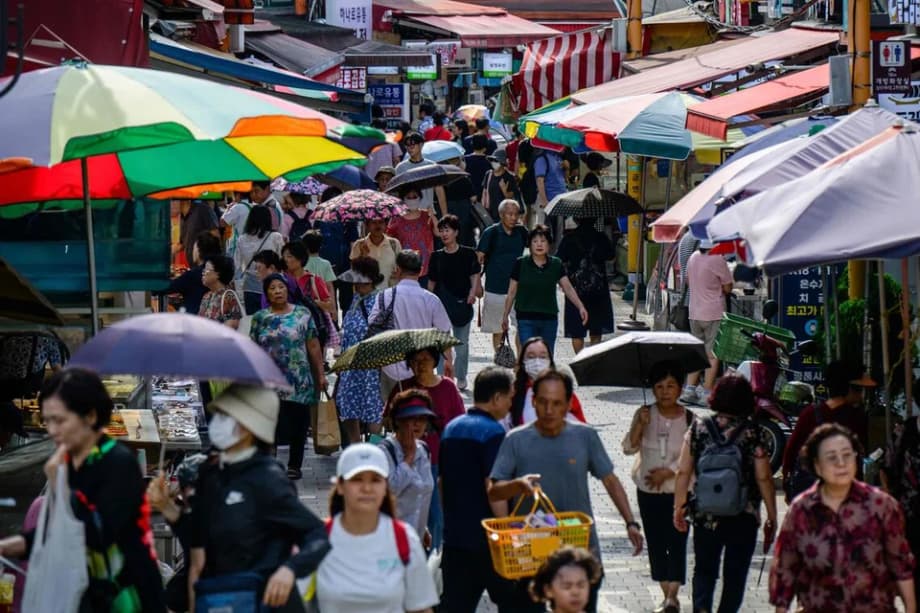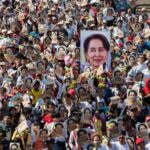A tragedy abroad ignites tensions at home
The killing of a young South Korean student in Cambodia has unleashed grief and anger at home. That anger is now spilling into daily life for Cambodians in South Korea, where reports of harassment and refusals of service have risen. Community advocates and scholars are urging Koreans to direct outrage at criminals and the authorities who failed to stop them, not at neighbors who share a nationality with the perpetrators.
- A tragedy abroad ignites tensions at home
- What happened in Cambodia
- Harassment of Cambodians in South Korea grows
- Law enforcement steps and political pressure
- Misinformation fuels anger online
- Inside the Cambodian community in South Korea
- Balancing security and social cohesion
- Regional stakes
- What to do if you are approached for a job in Cambodia
- The Bottom Line
In one recent case, a Cambodian man in South Korea said a drunken stranger asked his nationality, then struck him on the head after hearing his answer. Cambodian residents have also reported taxi drivers refusing rides after hearing their accents or seeing identity documents. Some say they are afraid to go out. Others hesitate to answer questions about where they are from. These are classic signs of collective blame taking hold after a shocking crime.
The tension follows a crime that horrified South Koreans. A 22-year-old university student traveled to Cambodia and was later found dead, his body showing signs of severe torture. Investigators tied the case to a scam ring. Prosecutors charged three Chinese nationals with murder and online fraud. South Korea’s spy agency identified a key suspect with links to a major drug trafficking operation. The case became a rallying point for a country already frustrated by a surge of kidnappings and online scams emanating from parts of Southeast Asia.
What happened in Cambodia
Cambodia has emerged as a focal point for transnational scam operations that expanded during and after the pandemic. The death of the South Korean student put a spotlight on a wider crisis. In 2023, hundreds of cases of South Koreans being kidnapped in Cambodia were recorded. Security agencies estimate that between 1,000 and 2,000 South Koreans have been involved in Cambodian scam operations at any given time. Some went willingly for quick money. Others were misled by false job ads or traffickers, had their documents seized and were forced to carry out fraud.
These scam compounds are industrial in scale. Estimates by researchers and monitoring groups suggest there may be hundreds of sites across Cambodia, with a total workforce in the hundreds of thousands. Cambodia, Laos and Myanmar have all seen criminal groups set up call centers and back offices to run romance fraud, bogus investment pitches, cryptocurrency swindles and real estate scams. Victims describe torture, beatings and threats of organ removal. Families back home have received ransom demands in cryptocurrency. Some paid tens of thousands of dollars to try to free loved ones.
Why scam compounds flourished
During the pandemic, tourist businesses in parts of Southeast Asia saw revenue collapse. In Cambodia, some Chinese owned casinos and hotels shifted to illicit operations that used the same buildings and staff. Crackdowns in nearby countries pushed crime rings to migrate into areas where enforcement was weaker or corruptible. Compounds often sit behind guarded gates, with internet cutoffs and barred windows. Guards and local brokers keep workers inside and move people around when police get close.
South Koreans became especially valuable targets. The country has high internet use and strong e-commerce habits. Fraud aimed at South Korean consumers can be very profitable. Ransom demands are also more likely to be paid by families with savings. Crime groups run scripts in Korean, hire recruiters fluent in the language and use social media to lure young job seekers with promises of high pay and easy work abroad. Once inside a compound, escape is difficult and dangerous.
How South Koreans are targeted and trapped
Recruiters post fake jobs offering customer service roles, tech support or crypto trading assistance. Applicants are told to fly to Phnom Penh or to a border city and to bring their passports and bank cards. After arrival, traffickers confiscate passports and phones. Workers are assigned to a floor, trained to use scripts and pressured to reach daily quotas. Those who fail face beatings, electric shocks, starvation or sale to another compound. Women report sexual violence. Men describe sleep deprivation and constant surveillance.
The line between victim and perpetrator can blur. Some recruits knew they were joining scam outfits, but did not expect the level of violence. Others insist they were kidnapped or coerced. That distinction matters for prosecutors in both countries. It also matters for the public conversation in South Korea, where the anger over crimes abroad has at times turned into suspicion of Cambodians who have nothing to do with the scam industry.
Harassment of Cambodians in South Korea grows
South Korea hosts an estimated 60,000 Cambodians, including about 5,000 who have become naturalized citizens. Most work legally in factories, farms, shipyards and small businesses. Many speak Korean, pay taxes and raise families. Recent stories of insults, intimidation and refusals of service have shaken this community. Some residents now avoid speaking Khmer in public. Others are weighing whether to move, even if their jobs and families are rooted in Korea.
Park Yoo-ri, who leads a municipal center that supports foreign residents in Ulsan, has called for compassion and perspective. She said criminals in Cambodia should face justice, but that ordinary migrants in Korea should not be blamed for crimes they did not commit. Park also warned that hateful rhetoric erodes public safety by driving victims of crime into silence.
Park Yoo-ri said: “The series of incidents happening in Cambodia was committed by criminal gangs. It is sad that the image of hardworking and innocent foreign nationals in Korea has been so badly damaged.”
Choi Hang-sub, a professor at Kookmin University who studies migration and social attitudes, echoed that message. He argues that it is fair to criticize institutions when they fail to protect people, but it is unfair to spread hostility toward a whole nationality.
Professor Choi Hang-sub said: “We can criticize the Cambodian police or government, but it is not right to harbor hatred toward the majority of Cambodian people.”
The core point from advocates is simple. Judge actions, not passports. Assault, harassment and discrimination will not prevent a single online scam. They only make neighborhoods more fearful, workplaces more tense and the justice system less effective when victims stay quiet.
Law enforcement steps and political pressure
South Korean authorities have tightened travel advisories and restricted access to areas of Cambodia where scam compounds operate. Consular staff in Southeast Asia are being reinforced. Officials set up early warning systems and are working to remove fraudulent job postings that entice young Koreans to leave for risky assignments.
Both governments have intensified cooperation. Cambodian police have raided suspected scam centers across multiple provinces. In recent months, they reported 92 operations that led to the detention of more than 3,000 people of many nationalities. Authorities said most detainees were victims who were deported. Dozens believed to be organizers have been charged in Cambodian courts. Cambodian officials shared case files with visiting South Korean lawmakers who inspected sites on the outskirts of Phnom Penh.
Cambodia and South Korea increase cooperation
South Korea and Cambodia agreed to expand joint investigations and hotlines. A chartered flight repatriated dozens of South Koreans who had been detained. On arrival, police in Korea secured arrest warrants in many cases and began sorting who acted willingly and who was forced to commit fraud. Cambodian police also arrested 57 South Korean nationals during a raid near the capital. They were among 86 people found inside a single building, a reminder of how many nationalities turn up in these operations.
The scale of the crisis has pushed lawmakers to take an active role. Delegations traveled to Cambodia, met police and prosecutors, and visited alleged scam sites. They pressed for faster access to imprisoned Koreans and more cooperation to find missing nationals. In parallel, investigators in Seoul analyzed cryptocurrency flows and bank records to identify local recruiters who sent Koreans to the compounds.
Domestic investigations and sanctions
South Korea’s National Intelligence Service identified a prime suspect in the student’s death with connections to a large narcotics network. Officials have warned that 1,000 to 2,000 South Koreans may be working in Cambodian scam centers at any time, some voluntarily, some under duress. Police said local courts issued arrest warrants for dozens of recent returnees suspected of running romance fraud, bogus investments and voice phishing targeting Koreans.
Policy makers are weighing financial measures against syndicates based in Cambodia. The United States recently announced sweeping sanctions against Southeast Asian scam networks and seized cryptocurrency estimated at many billions of dollars. South Korean officials are studying similar tools to choke off funding, restrict access to payment platforms and deter collaborators at home. Some politicians are also discussing whether to condition development aid on stronger action by local authorities against scam hubs, while diplomats caution that maintaining cooperation is essential to rescue victims and dismantle networks methodically.
These steps are significant, but they will take time to produce visible results. The compounds are mobile. They shift staff and rebrand quickly. Sustained pressure, financial tracking and cooperation with regional partners give the best chance of shrinking the industry and keeping people safe.
Misinformation fuels anger online
Rumors and recycled videos have complicated efforts to keep the public informed and calm. An old clip of a military parade in Seoul was falsely presented on social media as evidence that South Korea was preparing to send troops to Cambodia. Embassy officials denied such claims. Another out of context video of a protest by Cambodian workers in Seoul was wrongly linked to the student’s killing. These false narratives inflame tempers and can trigger harassment of innocent people.
There are simple ways to avoid being misled by viral posts that thrive during crises.
- Check the date and origin of videos. Old footage is often repackaged for new claims.
- Look for official notices from embassies, police or ministries before believing posts about military deployments or mass arrests.
- Be skeptical of posts that cite unnamed insiders or include sensational captions without details the authorities can verify.
Every misleading post that spreads makes it harder for investigators to do their work and easier for criminals to hide behind confusion. Accurate information helps families of victims, protects foreign residents from abuse and keeps the focus on stopping the real culprits.
Inside the Cambodian community in South Korea
Most Cambodians in South Korea arrived legally to take up jobs that are difficult to fill domestically. Many hold E-9 work permits under the Employment Permit System (EPS). They work in manufacturing, shipbuilding, agriculture and caregiving. Their labor supports export factories, food supply chains and the service sector. They send remittances to families in Cambodia and often plan to start small businesses when they return home.
Community leaders say the recent backlash has altered daily routines. Some Cambodians are avoiding late nights and switching routes to work. A few have packed bags in case they need to leave quickly. These are people who follow the law and contribute to their neighborhoods. South Korea’s government and local municipalities operate foreign resident support centers that offer language help, counseling and legal advice. Victims of assault or threats should call 112 to reach the police. The immigration helpline (1345) can connect callers to translation and services. Reporting incidents makes communities safer for everyone.
Balancing security and social cohesion
South Korea faces a demanding task. The country must protect citizens from violent crime and large scale fraud tied to networks overseas. It must also ensure that people living peacefully next door are not blamed for acts they did not commit. Policies that recognize both goals are already in motion. More can be done without inflaming tensions.
- Use targeted enforcement against recruiters and money handlers in Korea who feed the scam industry abroad.
- Separate individual accountability from nationality in public statements and court proceedings.
- Expand safe reporting channels for foreign residents, with anonymous options in multiple languages.
- Prosecute hate crimes, assaults and intimidation swiftly to signal that harassment has consequences.
- Encourage accurate media coverage that avoids sweeping labels and highlights verified facts.
- Train frontline workers, including taxi drivers and service staff, on non-discrimination rules and how to handle ID checks without profiling.
Regional stakes
Tourism between South Korea and Cambodia has slowed as families cancel trips. Businesses with ties to Cambodian suppliers worry about reputational risk. Crime groups are already moving staff to Laos and Myanmar when pressure increases, which means the challenge is regional. ASEAN members and partner countries need to share intelligence, coordinate raids and tighten financial screening to make it harder for syndicates to rebuild in a new location.
Regional summits are starting to prioritize transnational online fraud. Joint statements, hotlines and police exchanges are useful, but they must be backed by steady case work that traces money, arrests recruiters and protects survivors. The aim is to dismantle the profit model that keeps the compounds in business. If the money dries up, the kidnapping stops and the lure of quick cash fades.
What to do if you are approached for a job in Cambodia
Criminal recruiters rely on urgency and secrecy. Slowing down and checking details can prevent tragedy.
- Verify the employer with official registries and ask for a written contract reviewed by a trusted adviser.
- Be cautious of offers that promise very high pay for minimal experience or that require you to bring multiple bank cards.
- Reject any request to let someone use your bank account.
- Never surrender your passport or phone to a recruiter. Keep copies of all documents.
- Contact the South Korean embassy or consulate in Cambodia before travel if anything seems unusual.
- Share your itinerary and location with family or friends and set regular check in times.
- Report suspicious ads to local police or the cybercrime unit. Ask job sites to remove fraudulent listings.
The Bottom Line
- Harassment of Cambodians in South Korea has risen after a student’s killing in Cambodia tied to a scam ring.
- Advocates and scholars urge Koreans to condemn criminals and failed institutions, not a whole community.
- Hundreds of South Koreans have been trapped in Cambodian scam compounds since 2023, with many more lured to similar sites across the region.
- Cambodia and South Korea have expanded raids, repatriations and joint investigations, and Korean courts are moving to charge some returnees.
- Officials are considering financial measures against crime syndicates while reinforcing consular support and warning systems.
- False videos and rumors on social media have fueled anger and confusion.
- About 60,000 Cambodians live in South Korea, the vast majority as law abiding workers and family members.
- Precise enforcement, reliable information and strong community support can reduce harm without inflaming prejudice.












